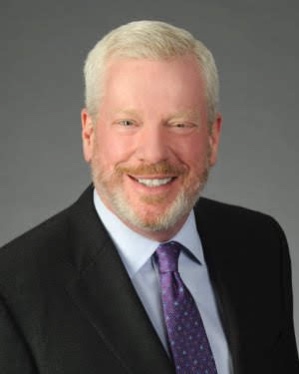“Charity must never look to the past, but always to the future, because the number of its past works is still very small and the present and future miseries that it must alleviate are infinite,” said Frédéric Ozanam.
How true those words ring today as we Vincentians face a future fraught with the uncertainty of the pandemic’s impact on our economy, our social interactions, and our ability to serve those in need. After a year in which our Home Visits have more often than not turned into video visits, our ability to serve the needs of the poor through food pantries, feeding kitchens, and thrift stores has been tested, and our volunteer base has been disproportionality impacted by the fear and reality of the COVID-19 virus, we must now look to the future and plan for how we continue our work in a world none of us has ever known, and which we cannot clearly envision.
I think we know that tomorrow will look nothing like yesterday. How many of us, in March of 2020, fully expected that by the end of that summer life would be back to normal? I know I did. Then it wasn’t. And it wasn’t at Thanksgiving, or Christmas, or now. The year went by and the world seemed to stand still. But it didn’t – it changed; dramatically.
And we changed with it. We found new ways to operate food pantries, serve meals, visit the poor, and comfort the needy. Our Conferences and Councils used new and innovative ways to raise needed funds to serve the poor. We found new volunteers; younger, more ‘tech savvy,’ more open to innovation and change. They have helped us change in real time for the new future. And what a wonderful thing that is to see!
Now, as we begin to see an end to this pandemic, it is critical that we “never look to the past, but always the future” and begin to make the systemic and structural changes to our Society in this new and changing reality that is our world. We must look at the innovative and creative ways in which we have operated these past months, analyze what worked and what did not work, and then build on the successes. This may cause us some degree of consternation as we are going to have to face the reality that one of our core principles, the Home Visit, probably is not going to look the same.
So, what could these changes look like? One way, I believe that we must make a conscious and concerted effort to increase our collaborative efforts with other organizations who can help us fill the gaps in our charitable ‘delivery model.’ Going to the poor does not always have to be going to their place of residence, as preferable as that may be. We can learn much about the sufferings of those in need by being in their communities and learning from others who serve. I have seen organizations here in Georgia that have set up service centers in the local communities, using houses of worship and other physical locations to deliver assistance safely with appropriate social distancing and the ability to have better access to the technology necessary to provide access to needed services. Being in the community means that instead of relying solely on the parish property as our ‘base of operations’, we go to the poor where they live; not the house in which they live, but the community in which they live. I believe that will also give us a fuller and more realistic perspective on the challenges and realities that are faced by those we serve. And we can increase outreach and collaboration to become more effective in offering holistic and impactful support.
We also have the unique opportunity to create volunteer and service opportunities for those who in the past may have not considered the Society as they discerned how they wanted to live out their faith. We must be honest with ourselves and admit that in the past we have sometimes (oftentimes) not valued those who want to serve, but do not want to do Home Visits or attend bi-weekly meetings. That has, I believe, left many young people and people with unique and important talents, no choice but to look elsewhere. If we maintain a stance of rigidity and adherence to practices that are not aligned with the reality of tomorrow’s world, we will continue to see a decline in our membership and eventually see that new world reality pass by and leave us behind. The work we do is much too important for us to let that happen. Let us commit to finding new ways to leverage technology, innovation, and new thinking so that we can make a greater and lasting impact.
Some may balk at these ideas and say that we must adhere to the past to maintain our values and principles. But I say we can look to Frédéric for inspiration and guidance on that probable change. “Let us do without hesitation whatever good lies at our hands,” said Frédéric Ozanam. And what is at our hands today and will be tomorrow is not what may have been at our hands yesterday.
So, let us continue that use of the ‘good at our hands’ to accomplish the one and only thing that matters; “We are here on this earth to accomplish the will of Providence,” said Frédéric Ozanam.
John Berry
National Council Vice President
Southeast Region


